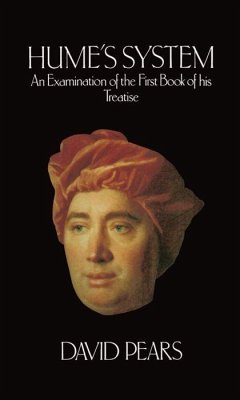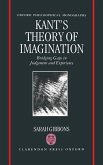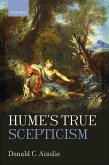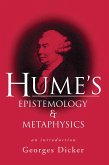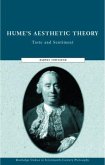In this compelling analysis David Pears examines the foundations of Hume's theory of the mind as presented in the first book of the Treatise. Past studies have tended to take one of two extreme views: that Hume relies exclusively on a theory of meaning, or that he relies exclusively on a theory of truth and evidence. Steering a middle course between these positions, Pears argues that Hume's theory of ideas serves both functions. He examines in detail its application to three difficult problems: causation, personal identity, and sense perception. Hume's solutions, Pears argues, are not theories that can be given a place in standard classification of philosophical theories, but rather depend upon a subtle form of naturalism not altogether unlike Wittgenstein's naturalism. A clearly written and argued study, Hume's System will be of special interest to students and scholars of the history of philosophy.
Hinweis: Dieser Artikel kann nur an eine deutsche Lieferadresse ausgeliefert werden.
Hinweis: Dieser Artikel kann nur an eine deutsche Lieferadresse ausgeliefert werden.

